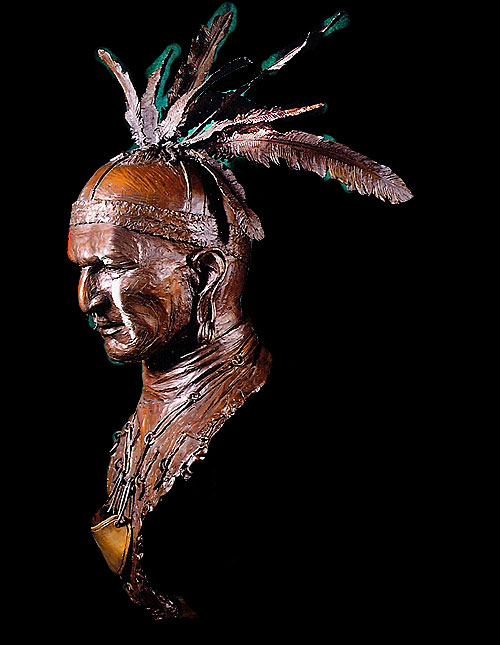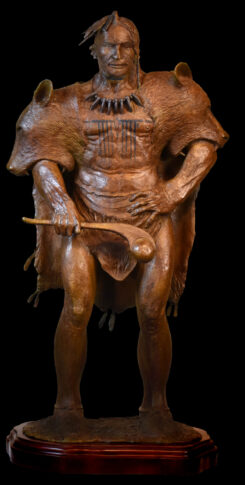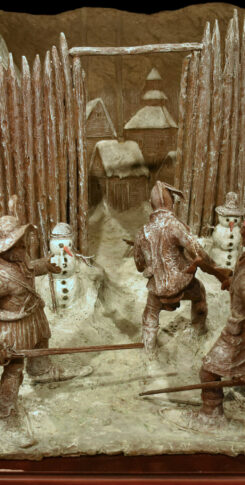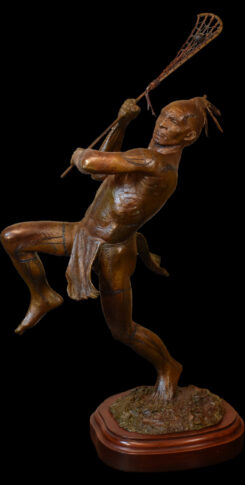Bronze edition: 9 | Height: 32″
“He lived in simple style, surrounded with plenty and practicing a rude hospitality while his sway was kind and patriarchal”.
Thus is “Cornplanter” described in his old age by a writer of the 1830s. “Cornplanter” (literally from the Seneca “Kiiontwogke”, meaning “what one plants”) earned fame in his youth as a valiant warrior – taking part in the infamous destruction of Gen. Braddock’s army in 1755 in which Colonel George Washington first gained notoriety. Later he was known as a wise as well as a powerful chief and one of the last great spokesmen for his people.
In his youth, the Seneca were still basking in the reflected glory of the great Iroquois half-century of conquest (1641 – 1701). Through brutal warfare and shrewd diplomacy they controlled a vast area stretching from the coast of Maine to the Mississippi and from north of Lake Superior to Northern Alabama. But their power was fast waning and by the end of his life, the barriers which had held back the flood were swept away and their land was reduced to scattered islands in a sea of white civilization.
“Cornplanter’s” contemporary and great rival, “Red Jacket” spoke eloquently of this transformation in his poignant farewell address (1830): “I am about to leave you, and when I am gone and my warnings shall no longer be heard or regarded, the craft and avarice of the white man will prevail. Many winters have I weathered the storm but I am an ancient tree and can stand no longer. My leaves have fallen, my branches withered and I am shaken by every breeze. Soon my aged trunk will be prostrate and the exulting foe of the Indian may be placed upon it in safety; for I leave none who will be able to avenge such an indignity. Think not that I mourn for myself for I go to join the spirits of my fathers where age cannot come; but my heart fails when I think of my people who are soon to be scattered and forgotten…”





